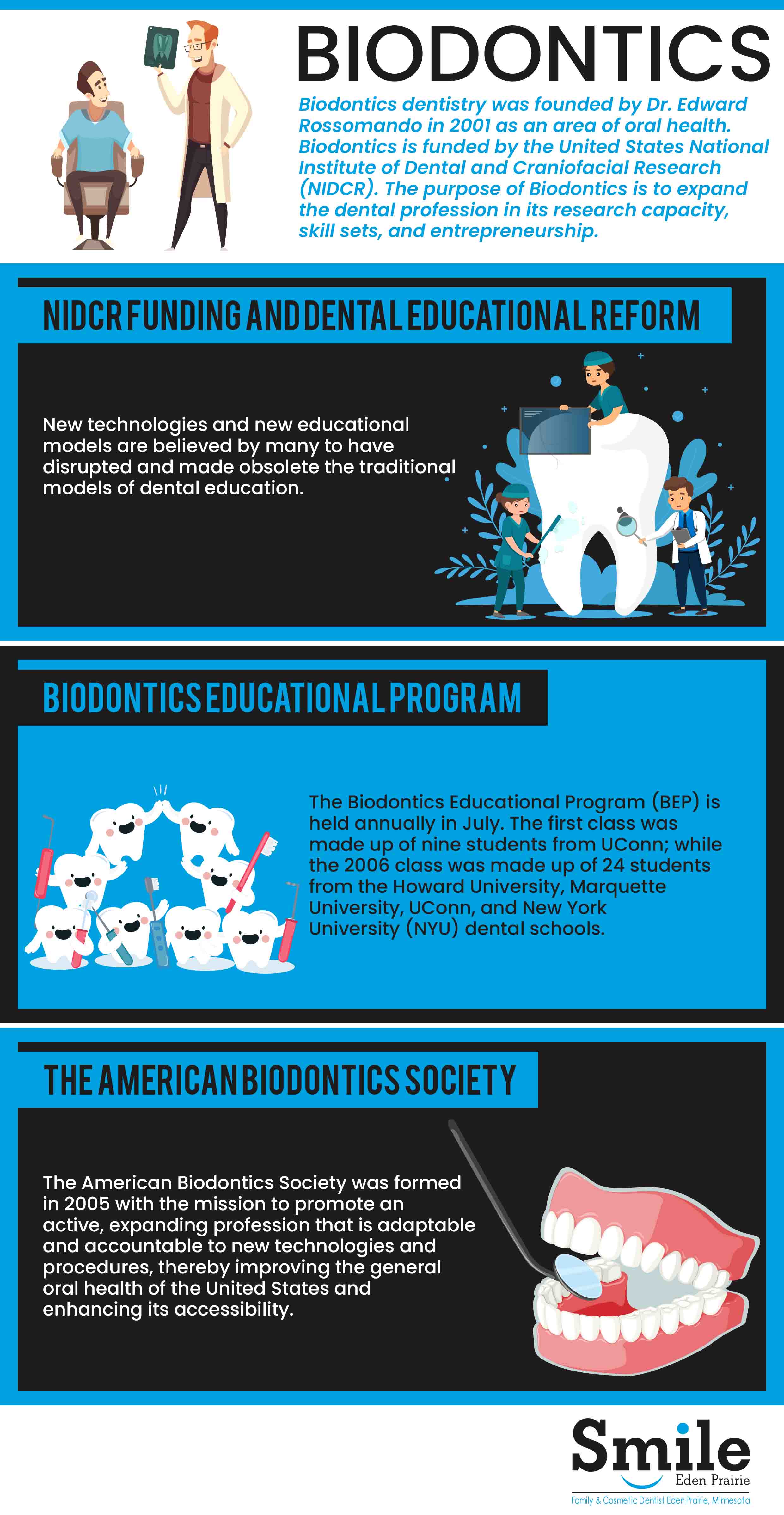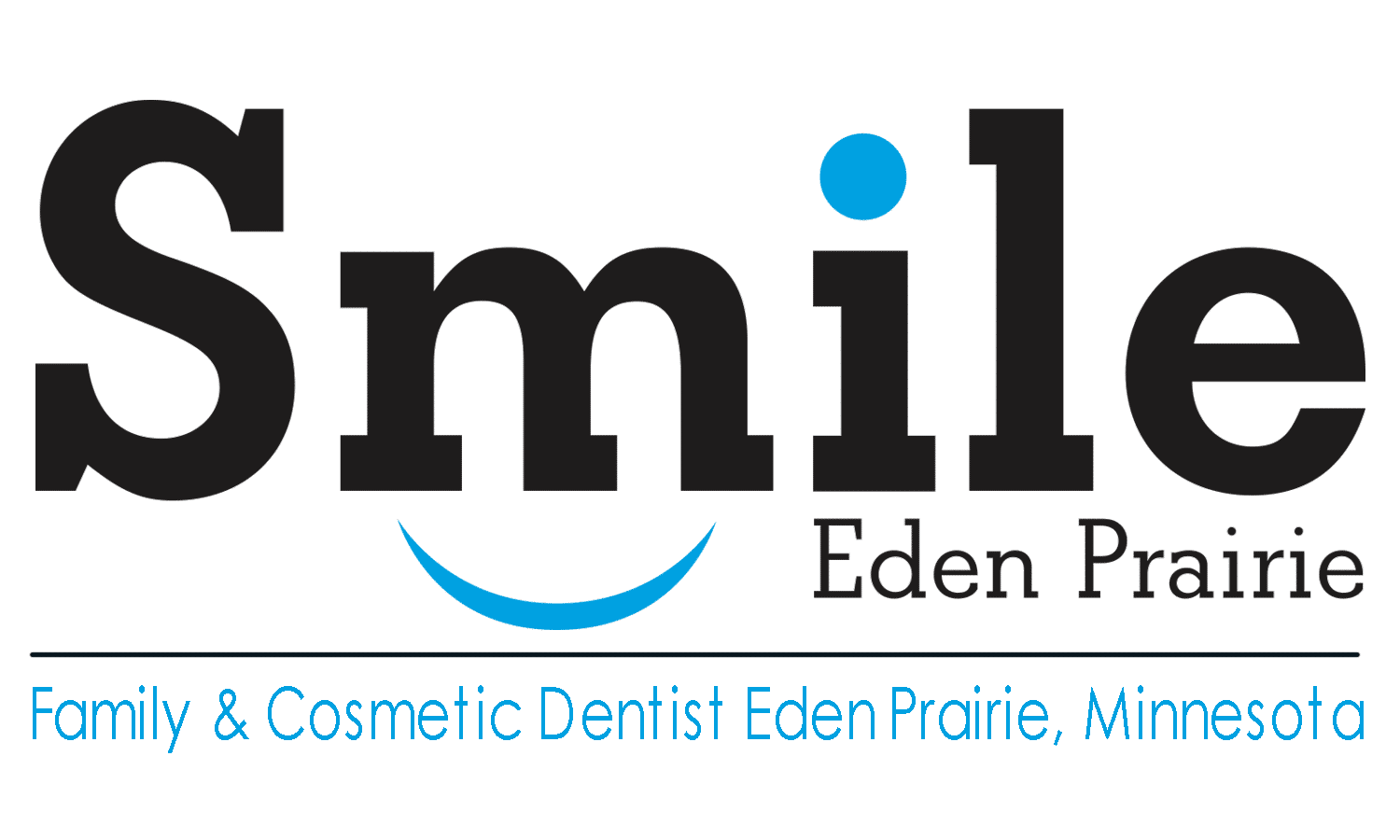General Dentistry Concepts: Biodontics
Dr. Edward Rossomando founded Biodontics dentistry in 2001 as a general area of oral health. The United States National Institute of Dental and Craniofacial Research (NIDCR) provides funding for Biodontics. The purpose of Biodontics is to expand and develop the dentistry profession in its research capacity, skill development and entrepreneurship. The University of Connecticut, School of Dental Medicine hosts the Biodontics Educational Program every July. The program connects business leaders, entrepreneurs, management executives, scientists, architects, and dental manufacturers by allowing them to share presentations and lectures with dental school students.
NIDCR funding and dental educational reform
New technologies and educational models are believed to have caused a disruption and made traditional dental education models obsolete. The 1995 Institute of Medicine’s report, Dental Education at the Crossroads, encourages dental schools to work to increase the productivity of the work force, including appropriately credentialed and trained allied dental personnel. In addition, the report recommends avoiding policies regarding dental school enrollments. The report’s recommendations stemmed from the closing of six private dental schools in 1993. Many dental schools also struggled with inefficiencies which wasted student’s time, poor use of patient’s time and also neglected to provide an efficient model of patient care. Revisions were also recommended in the process of dental school accreditation.
The NIDCR began an initiative in 2002 to fund experimental educational programs in dental schools throughout the country. The Biodontics Educational Program a program which stemmed from this initiative.
Biodontics Educational Program
The Biodontics Educational Program (BEP) is held each year in July. The first class consisted of nine students from UConn. A few years later, in 2006, the class was made up of 24 students from various universities including: the Howard University, Marquette University, UConn, and New York University (NYU) dental schools. The program included lectures and presentations from business leaders, entrepreneurs, management executives, scientists and architects in addition to dental manufacturers. New technologies, such as probiotics, dental lasers, as well as effective business practices were also included in the program with the goal of offering students a wide variety of experience. The rationale in exposing dental students to a wide range of fields and backgrounds was to prepare them for eventually owning and managing their own businesses in addition to incorporating new technologies more quickly.
The American Biodontics Society
In 2005 the American Biodontics Society (ABS) was formed. Their mission is to promote an active, expanding dental profession that is easily adaptable and accountable to the introduction of new technologies and procedures. Ultimately improving the oral health of patients throughout the United States and enhancing accessibility to dental care. The ABS serves as a forum for the thorough evaluation, discussion and analysis of innovations within dentistry. The ABS has chapters at New York University (NYU), Howard University, UConn and Marquette University.
The American Biodontics Society is a worldwide fusion of all segments of the dental profession. This includes dental students, postgraduate students, general practitioners, faculty members, research scientists, members of dental manufacturing companies and entrepreneurs. This collaboration helps to promote the creation of a new generation of oral health professionals through the training of dentists, educators and research scientists in the following areas:
- The use of biotechnology in a dental clinic
- The management of the technology transfer process
- Clinical applications of dental research and informatics

